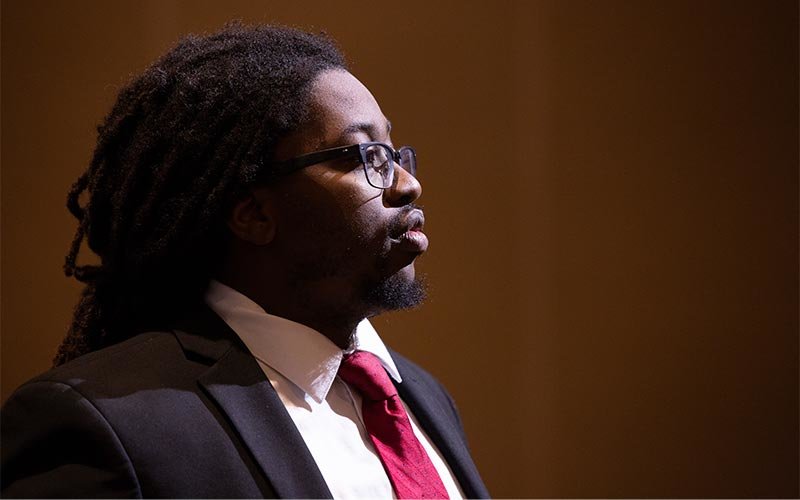
As a first-generation college student, alumnus Torrell Foree recalls how he felt lost and isolated as a Cal State Fullerton undergraduate. He had no idea what to do with his life and started college without choosing a major. His backup plan was to become a history teacher and basketball coach.
It wasn’t until his second year in college when a fellow African American student stopped him in the Quad and told him about a group of black men that met Tuesday evenings for fellowship. That encounter changed his life and his college journey.
When Foree walked into that room of men who looked like him, he immediately found solace, a sense of belonging and a connection to campus. Through the Alliance for the Preservation of African Consciousness student organization, he took on leadership roles, made lifelong friends and even met his wife.
From there, he became involved in the university’s African American Resource Center, a place where he found his identity, and met regularly with fellow students to study, watch movies or engage in debates about music and sports. He ended up studying history, African American studies and sociology.
“I found something in this space that wasn’t really about the space at all. It was about community. … This community molded me, shaped me into the man I am, and what I’m still becoming. It loved me at times when I didn’t love myself.”
Fast forward to last year. Foree landed the position as coordinator of the African American Resource Center and strives to provide the same opportunities to black students that helped transform him as a student.
The center, now part of the university’s Diversity Initiatives and Resource Centers in the Division of Student Affairs, is housed on the first floor of Pollak Library. It is a vibrant place that gives students a safe space to hang out and relax between classes, socialize and meet new friends.
Foree earned a bachelor’s degree in history and African American studies in 2014, and two years later, a master’s degree in education-higher education at CSUF. He aspires to one day earn a doctorate and teach history at a university.
What is your role as center coordinator?
I’m responsible for the day-to-day operation of the center, which includes supervising five student assistants and one graduate student assistant. I also organize programs and events so students can learn about African American history and culture, and I help connect students to campus resources. A big part of my role is to be a resource for students — to make sure they feel welcomed and comfortable talking to me; someone who has had some of the same kind of experiences.
How do students benefit by having a campus center?
For our black students, they may be the only black student in their classes or major. One of the key benefits is they come in here and see and meet other students who look like them. The center offers them a range of support, services, programs and events that help them achieve college success, especially those who are the first in their family to go to college and don’t know how to navigate higher education. The center is also a springboard to other campus programs, such as the Career Center that can help them with skills like building a resume, and resources like health and counseling services. Most importantly, students find community here. The center is a place to call home.
What do you enjoy most about the job?
What’s most rewarding is building relationships with the students. I’m able to provide mentoring and help with letters of recommendation for jobs and graduate school. Students appreciate that I am here. A lot of people helped me as a college student and now I’m serving in that role. It’s gratifying to give back, to pay it forward. And doing it at my alma mater makes it even more special.
For more information about the African American Resource Center and upcoming programs, visit online.